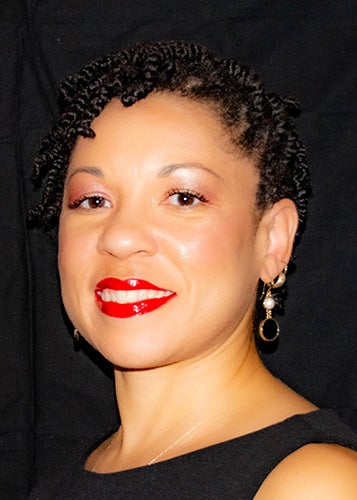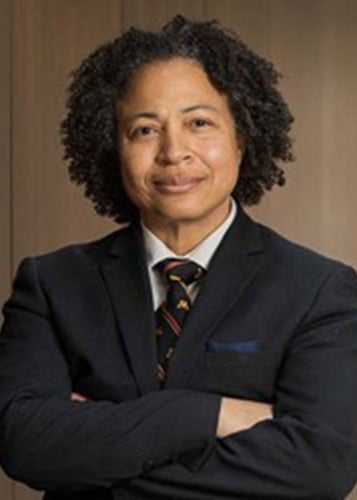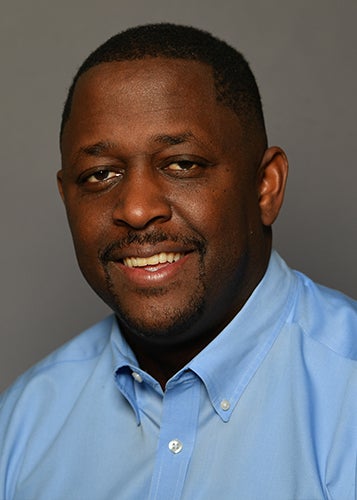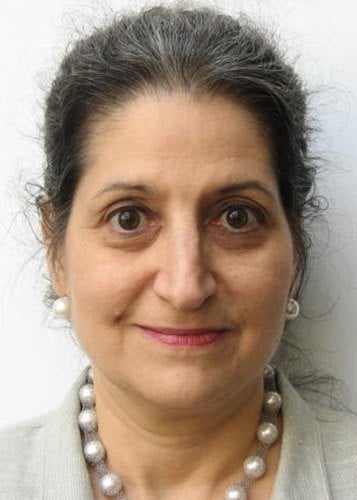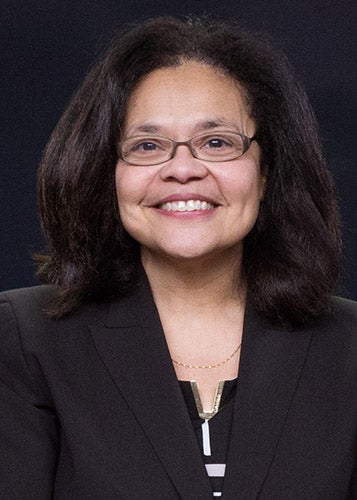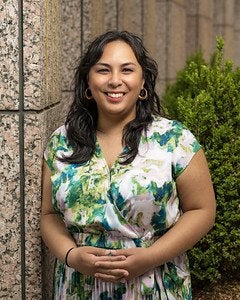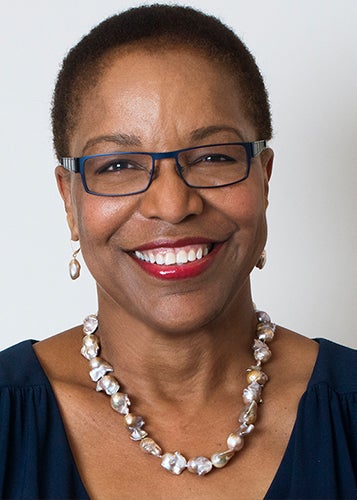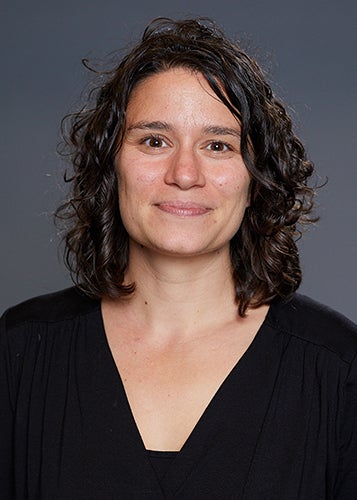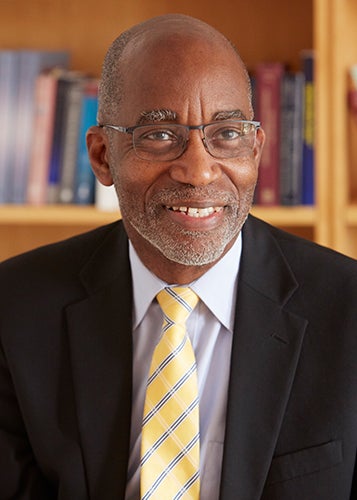Leadership Development to Advance Equity in Health Care
Program Overview
Advancing Health Equity Through Leadership in Health Care Management
One of the most glaring and seemingly intractable challenges facing health care organizations and professionals today is the absence of health equity for their patient population. Disparities in health care between groups defined socially, economically, demographically, or geographically are, in the World Health Organization’s (WHO) definition of health equity, “unfair and avoidable or remediable.” This program will teach you how to recognize, confront and remediate unfair practices and advance health equity in your community or practice.
Traditional medical education in the United States and Canada lacks on how the health care system is influenced by black and brown racism and how outdated policies perpetuate disparities. To help fill this knowledge gap and refine your leadership skills through a health equity lens, this program delves into the current state of the US health care system and the latest research on the social determinants of health. Using this knowledge, we will:
- Examine how specific policies adversely affect vulnerable populations and explore inequities from a policy and business perspective
- Analyze factors impacting patients and health care providers, such as identity/identification, “minority tax,” imposter syndromes, implicit bias, work-life integration, and secondary stress refracted through systems
- Discover how to lead conversations with colleagues and partners to improve your organization’s policies and procedures and, ultimately, the health of your community at large
By participating in this program, you will gain the healthcare leadership skills to be a transformational leader who not only understands population health, but also pioneers innovation in policies, practices, and programs that promote health equity.
Take the Next Step in Your Career Evolution with the
Executive Leadership in Health Care Certificate of Specialization
Leadership Development to Advance Equity in Health Care is one of the nine programs eligible for the Executive Leadership in Health Care Certificate of Specialization, which is specially designed for those who desire to learn how to excel at managing and leading groups in a health care setting. The Certificate consists of three* programs—offered both online and on-site in Boston, MA—designed and taught by Harvard Faculty and prominent health care leaders to prepare you for the future of an ever-changing health care industry.
For more information, visit our Executive Leadership in Health Care Certificate of Specialization page.
*Program for Chairs of Clinical Services and Leadership Development for Physicians in Academic Health Centers each count as two programs towards the certificate.
Learn from the experts
Improving health equity is a multi-factorial and cross-sectional agenda that requires members of the health care system to be informed and working towards influencing change. To help you make a real difference at your organization, expert Harvard faculty will lead skill-based sessions to help you identify and work to change biased policies and environments—while supporting health equity and diversity in your organization.
Course faculty include one of Harvard T.H. Chan School’s most prominent scholars in the area of diversity and inclusion, Dr. Joan Reede, ScB, MBA, MS, MPH, M.D. She is the current Dean of Diversity, Inclusion & Community Partnership for Harvard Medical School. Also presenting will be Dr. David Williams, PhD, MPH, an internationally recognized social scientist focused on social influences of health, and a host of other clinicians and other health equity experts. Please note that Dr. Williams will not be teaching at the April 2023 session.
After you complete this dynamic leadership development program, you will:
- Have a deep understanding of the bias that negatively impacts health equity and its history in the American health care system
- Be empowered to facilitate crucial conversations around health equity that can affect change in your organization and community
- Understand how you fit into your organization’s staffing and know how to identify allies, mentors, and partners who can help you transform your organization from within
Objectives & Highlights
Learning Objectives
- Deepen your knowledge of health to include social determinants; a reflection on how American historical factors and political agendas shape power and result in health inequities; and an identification of specific, tangible opportunities to operationalize strategies to advance health equity in your work or practice
- Gain a greater understanding of the innovative leadership frameworks (such as adaptive leadership, authentic leadership, and transformative leadership) required to make substantial and lasting changes in an organization
- Identify strategies for managing change in organizations, such as analyzing the major drivers of organizational change; communicating health equity in public and professional environments; and developing strategies to make managerial decisions based on data
- Examine your personal and professional challenges of maintaining work/life balance, leadership responsibilities, and career aspirations
Program Highlights
In Leadership Development to Advance Equity in Health Care, you’ll have the opportunity to:
- Create meaningful partnerships and make a collective impact on marginalized and vulnerable populations within and across health care and community organizations
- Enjoy dynamic and interactive sessions in a personal environment with expert faculty
- Foster personal and organizational growth through small group discussions with like-minded peers in the health care system
Credits and Logistics
Continuing Education Credit
The Harvard T.H. Chan School of Public Health is accredited by the Accreditation Council for Continuing Medical Education (ACCME) to provide continuing medical education for physicians.
The Harvard T.H. Chan School of Public Health designates this live activity for a maximum of 18.25 AMA PRA Category 1 Credits™. Physicians should claim only the credit commensurate with the extent of their participation in the activity.
Harvard T.H. Chan School of Public Health will grant 1.8 Continuing Education Units (CEUs) for this program, equivalent to 18 contact hours of education. Participants can apply these contact hours toward other professional education accrediting organizations.
All credits subject to final agenda.
All participants will receive a Certificate of Participation upon completion of the program.
Faculty
Current faculty, subject to change.
Mary E. Fleming, MD, MPH
Program Director
November 5 – 8, 2024Reede Scholars
Director
Leadership Development to Advance Equity in Health Care
Harvard T.H. Chan School of Public Health
Jabbar R. Bennett, PhD
Faculty
November 5 – 8, 2024Office for Institutional Diversity and Inclusion
Michigan State University
Professor of Medicine
College of Human Medicine
Michigan State University
Renee Crichlow, FAAFP, MD
Faculty
November 5 – 8, 2024Codman Square Health Center
Garth Graham, MD, MPH, FACC
Faculty
November 5 – 8, 2024Healthcare and Public Health
Google / YouTube
Natalie D. Hernandez, PhD, MPH
Faculty
November 5 – 8, 2024Morehouse School of Medicine
Assistant Professor
Morehouse School of Medicine
Linda Kaboolian, PhD
Faculty
November 5 – 8, 2024Harvard T.H. Chan School of Public Health
Kimberlyn Rachael Leary, PhD, MPA
Faculty
November 5 – 8, 2024Department of Health Policy and Management
Urban Institute
Associate Professor of Psychology
McLean Hospital
Harvard Medical School
Enabling Change Program Director
DrPH Program
Harvard T.H. Chan School of Public Health
Associate Professor
Department of Health Policy and Management
Harvard T.H. Chan School of Public Health
Joan Y. Reede, MD, MPH, MS, MBA, ScB
Faculty
November 5 – 8, 2024Harvard Medical School
Professor of Society
Harvard T.H. Chan School of Public Health
Dean for Diversity and Community Partnership
Harvard Medical School
Louise Weed, MS
Faculty
November 5 – 8, 2024Department of Health Policy and Management
Harvard T.H. Chan School of Public Health
David R. Williams, PhD, MPH
Faculty
November 5 – 8, 2024Faculty of Arts and Sciences
Harvard University
Chair, Department of Social and Behavioral Sciences
Social and Behavioral Sciences
Harvard T.H. Chan School of Public Health
Florence Sprague Norman and Laura Smart Norman Professor of Public Health
Social and Behavioral Sciences
Harvard T.H. Chan School of Public Health
Agenda
November 5 – 8, 2024
All Times are Eastern Time (ET).
| Tuesday, November 5, 2024 | ||
|---|---|---|
| 10:00–10:15 am | Opening & Welcome | |
| 10:15–11:45 am | Public Narrative for Equity | |
| 11:45–11:55 am | Break | |
| 11:55 am–12:30 pm | Breakout Groups | |
| 12:30–12:50 pm | Lunch Break | |
| 12:50–2:15 pm | Art & Practice of Leadership | |
| 2:15–2:25 pm | Break | |
| 3:25–4:55 pm | Understanding Current US Policy | Wednesday, November 6, 2024 |
| 10:00–11:30 am | Setting the Context | |
| 11:30 am–12:00 pm | Breakout Groups | |
| 12:00–12:20 pm | Lunch Break | |
| 12:20–1:50 pm | Leading Organizational Teams: Case Studies | |
| 1:50–2:00 pm | Break | |
| 2:00–3:00 pm | Leading Organizational Teams: Case Studies | Thursday, November 7, 2024 |
| 10:00–11:30 am | Desert Island Exercise | |
| 11:30–11:40 am | Break | |
| 11:40 am–1:00 pm | Health Equity Leadership: Prioritizing and Creating Opportunities | |
| 1:00–1:20 pm | Lunch Break | |
| 1:20–3:20 pm | Road to Implementation: Process Improvement, Alignment and Communication | |
| 3:20–3:30 pm | Break | |
| 3:30–4:00 pm | Breakout Groups | Friday, November 8, 2024 |
| 9:30–10:50 am | Managing Change and Transition in Organizations | |
| 10:50–11:00 am | Break | |
| 11:00 am–12:30 pm | Managing Self and Leading and Coaching Others | |
| 12:30–1:30 pm | Wrap up |
This agenda is subject to change.
back to topWho Should Apply
This program is designed for health care executives and emerging leaders who are committed to addressing health equity in marginalized populations. Participants may include:
- Clinical professionals such as physicians, dentists, nurses, pharmacists, and psychologists
- Administrative professionals such as C-suite executives, department chairs, diversity officers, group practice executives, and human resources professionals
- Health care consultants from a wide range of organizations
Application and Admission
Successful applicants will currently hold a position in the health care field based in United States and Canada with 6+ years of experience, have at least a master’s degree or equivalent, and be committed to improving health equity. Fluency in written and spoken English is also required for the program.
Early application is encouraged. Qualified candidates will be admitted on a rolling, space-available basis, and programs often fill early.

